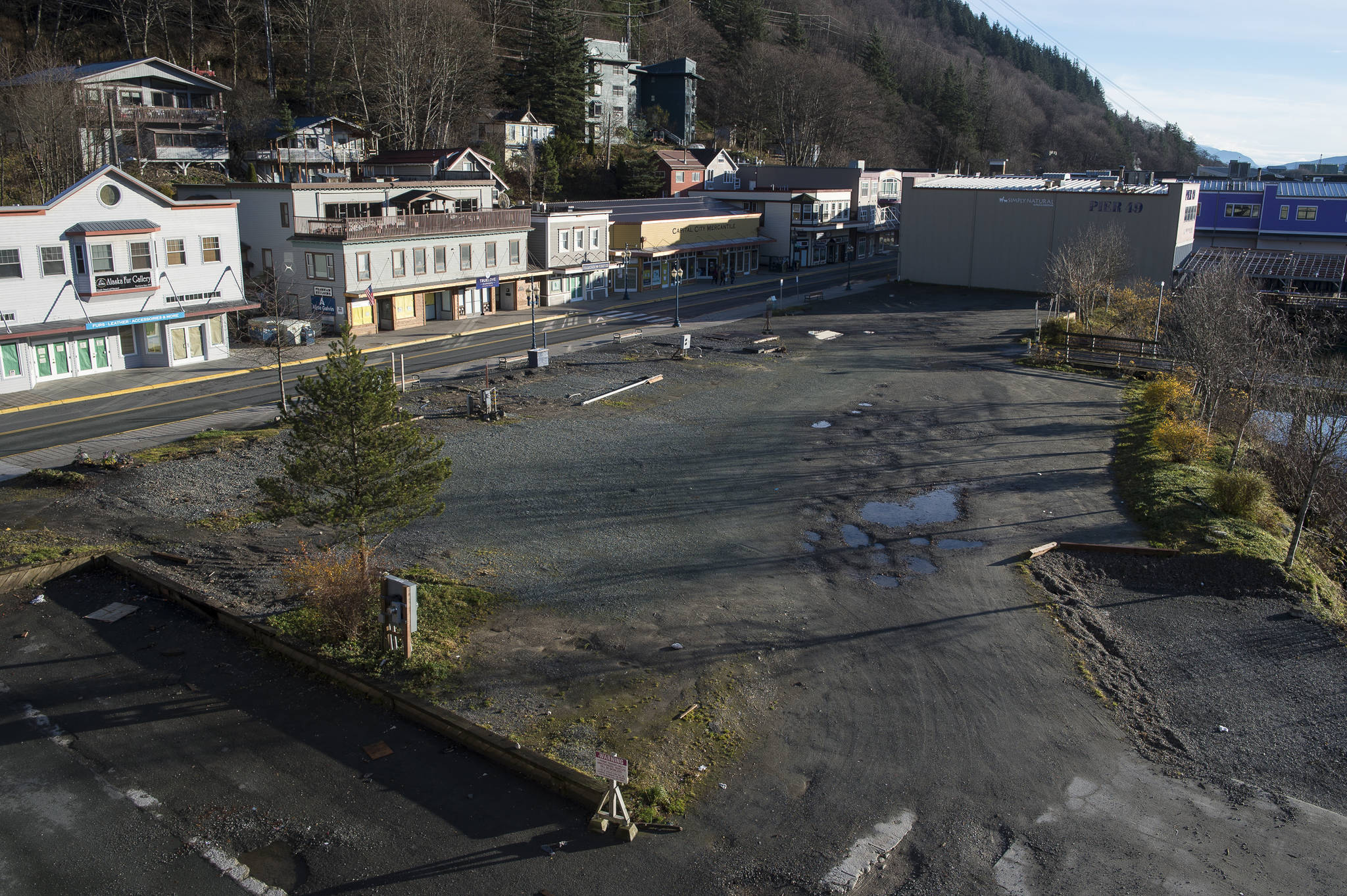The City and Borough of Juneau Assembly approved several ordinances advancing the downtown waterfront development project and property deal with Archipelago Properties LLC, a private company, which is a subsidiary of Morris Communications (the former owner of the Empire).
The approved ordinance allows City Manager Rorie Watt to enter into an agreement to purchase private property and sell municipal property resulting in a net cost to the CBJ of $922,175. The ordinance passed 7-2, with Assembly members Loren Jones and Rob Edwardson objecting.
[City looking for bargain with downtown waterfront development]
“Cruise ship vessels exist to take passengers on vacations, and their sole purpose for entering the port of Juneau is to allow passengers to disembark for the day and to enjoy walking about downtown and/or getting on ground transportation to their tours,” said Watt as he proposed the ordinance. “This project would provide necessary services to the vessel, to the passengers, and will advance the marine enterprise of the cruise ship industry.”
While Cruise Line Industry Association Alaska representatives said in a letter to Watt on Jan. 28, that they support the development project, they still are “not convinced” the expenditure of the passenger fees would survive scrutiny in court.
“As our litigation was specifically prospective, forward looking, and as CBJ is proposing this project with already collected fees and as this project does indeed have substantial benefit to seasonal tourism business, we are considering an agreement not to object to this particular project as part of a broader settlement of any continuing dispute between CLIA and the CBJ,” said CLIA Alaska President John Binkley in his letter.
[As cruise ship lawsuit comes to an end, what’s next?]
The CBJ portion of the development will include putting a deck over a portion of the lot. Much of the lot is tideland or water, and CBJ Finance Director Bob Bartholomew said the majority of the project is putting a deck over the water so the whole lot can be used. Another portion of the CBJ’s project will be a parking lot and equipment staging area for construction equipment.
The second phase of the project includes the construction of a covered structure, as discussed at the Nov. 19 Committee of the Whole meeting, and the final plans for the usage of that structure have not been decided yet. Multiple Assembly members expressed the hope that this structure can have a year-round use.
Assembly member Carole Triem proposed an amendment that would address the “right to object” clause included in the property deal that was brought up as a potential issue at a previous Assembly meeting. The clause, which was approved in the final version of the ordinance, allows the private property owners the right to object to certain uses in a specific portion of the lot, namely any future commercial deals CBJ might propose.
Triem’s main objection with the clause was that the price, saving $194,625 on the deal, did not equal the perpetual limit it places on the Assembly.
“This is distorting the free market in a way other concessions [on previous CBJ land deals] have not done,” Triem said.
But ultimately the amendment failed 6-3.
Several Juneau residents gave public comment on the issue of tourism at the meeting. Some were concerned that CBJ is not looking far enough ahead when it comes to tourism.
Juneau Resident Bill Leighty suggested that CBJ cap tourism carrying capacity in order to “reduce the supply” so the price of visiting Juneau goes up. He also asked CBJ look even further into the future, and avoid thinking only of increasing bus staging and parking spots, and consider a light rail or other public transit options beside private vehicular transportation.
[Number of cruise visitors expected to leap in 2019]
Assembly member Michelle Hale agreed that carrying capacity of cruise tourists is a conversation that the city needs to have, but this wasn’t the time to have it.
“I don’t think this vacant lot is the vehicle for that conversation,” Hale said.
Jones’s biggest objection with the project was that it will intensify the self-made “artificial divide” in the city between year-round Juneau and summertime Juneau. He also had problems with a portion of the purchase agreement that would force CBJ to start developing the property by March 23, while providing no assurance that Archipelago Properties LLC would develop their portion.
Edwardson’s main objection with the project was that he didn’t think it served all the people of Juneau, only some.
“I like this project, but I don’t think this is a public project,” Edwardson said.
After the ordinances approving the project were passed at Monday’s meeting, the Assembly awarded the contract bid for the project to Island Contractors, a Juneau company, for $783,820.
• Contact reporter Mollie Barnes at mbarnes@juneauempire.com or 523-2228.

